Content from the Brookings Institution India Center is now archived. After seven years of an impactful partnership, as of September 11, 2020, Brookings India is now the Centre for Social and Economic Progress, an independent public policy institution based in India.
This article first appeared in India and Africa: Forging a Strategic Partnership’, a briefing book published by Brookings India in October 2015. Like other products of the Brookings Institution India Center, this is intended to contribute to discussion and stimulate debate on important issues. The views are those of the author.
The same article was featured in The Indian Express, 29th October 2015.
India must have a serious dialogue with African countries on its role in future peacekeeping operations on the continent.
India’s participation in the United Nations Peacekeeping Operations (UNPKO) is probably without parallel; it has been one of the largest contributors of peacekeepers and has suffered the most casualties in the process. Eighty per cent of India’s peacekeepers are presently serving in Africa, and 70 per cent of all casualties have been sustained there. UN missions serve as the bedrock of India’s military engagement and assistance to Africa. However, there is growing debate on the efficacy of these missions, and benefits for India from its continued participation. In more ways than one, India and Africa are at a crossroads on this issue. Both need to move beyond platitudes and engage in a serious dialogue on India’s role in the future security architecture in Africa.
Historically, India has participated in nearly all UNPKO in Africa. Most famously, India helped set the trend in “peace enforcement missions” by deploying a sizeable contingent in Congo from 1960 to 1963. The end of the Cold War led to a pronounced increase in UNPKO in Africa; India has been an active contributor in almost all missions. It is presently engaged in 12 of the 15 active peacekeeping missions.
Recently, however, there has been debate about India’s continued role. Many question the benefits accruing to India from its considerable investment of manpower and military resources. In addition, critics cite the bad publicity generated due to instances of sexual misconduct and corruption allegedly committed by some Indian peacekeepers, and allegations that India failed to adequately protect civilians. These criticisms should not be brushed aside and instead provide an opportunity to debate the future of UN peacekeeping and India’s role in Africa.
Aspects of this debate resonate in some African countries. The failure of UNPKO in the 1990s led to a loss of confidence. There was a feeling that the UN had abdicated its role and created “a sense of African solidarity in finding African solutions to African problems”. These sentiments have led the African Union (AU), a 54-country group comprising all African states except Morocco, to deploy 64,000 peacekeepers since 2004 in numerous missions on the continent. Its current mission in Somalia, called Amisom, comprises 22,000 peacekeepers and is engaged in intense combat with the al-Qaeda-linked al-Shabaab group. However, these missions are funded almost entirely by donors like the UN, EU or the US, and only 2.3 per cent of the AU peacekeeping budget comes from its member states. On the one hand, therefore, are the wealthy Western countries that fund but do not commit troops. They are increasingly unhappy with the rising costs of UN peacekeeping — its current budget of $9 billion is the largest ever. In addition, they have raised questions on the ability and commitment of peacekeepers to saving civilian lives.
On the other hand, troop-contributing non-African countries, mainly from the developing world, however, argue that they are not adequately consulted when the missions are being formulated. African countries, which constitute the bulk manpower, are caught in the middle — financially dependent upon “developed” countries while requiring additional manpower, resources and support from “developing” countries to bolster their capabilities.
There are three measures that can be taken to spur the debate and enhance India-Africa security relations. First, India and Africa need to embark on a serious discussion on the future of UNPKO in Africa. Criticisms like the failure to protect civilians or allegations of misbehaviour and corruption need to be tackled head on. Discussions should focus on steps to increase the overall effectiveness of peacekeeping missions. Second, India should consider scaling up its security assistance to African countries. In the previous Africa-India Forum Summit in Addis Ababa in 2011, then Prime Minister Manmohan Singh announced a contribution of $2 million towards Amisom. This should be increased by a considerable degree, especially since this mission is involved in intense combat operations. In addition, India should enhance its military training teams in Botswana, Zambia, Lesotho and the Seychelles, and also work towards including other countries who express an interest. Third, India and Africa should shed their perceived reticence to discuss security issues and establish a high-level defence dialogue.
In the long run, the historical model of peacekeeping in Africa — funded by the West and manned largely by Asian countries — is unsustainable. India’s efforts in peacekeeping have thus far been remarkable, but it is now perhaps time to transition to an African owned-African led solution. Gradually reducing its peacekeeping responsibilities may therefore be for the best — and might have the added advantage of eventually enhancing India-Africa relations.
Anit Mukherjee, Assistant Professor, Nanyang Technological University, Singapore

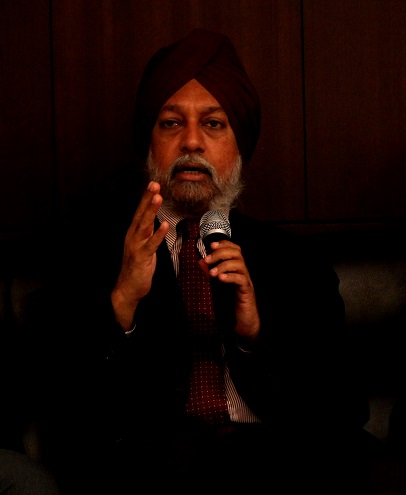
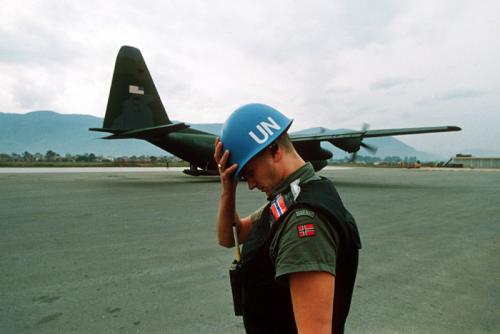
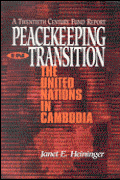
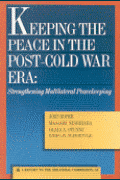
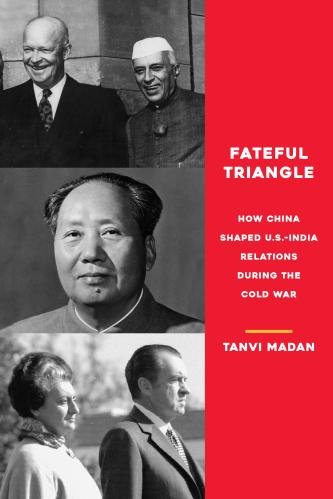



Commentary
Op-edUN missions bedrock of India’s military engagement and assistance to Africa
October 29, 2015